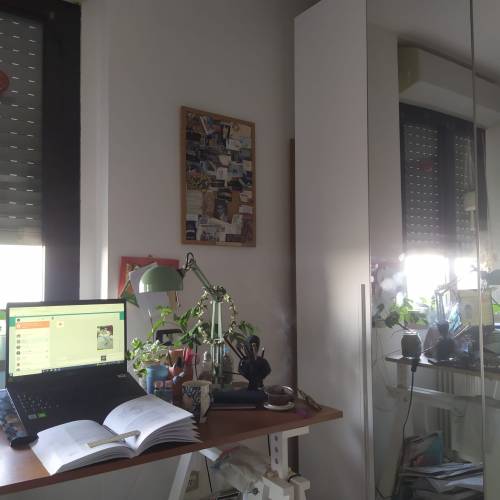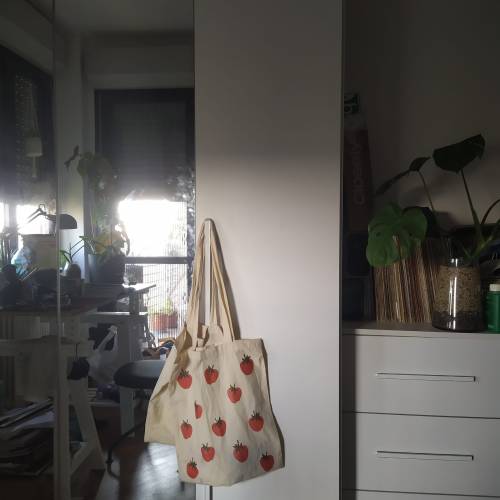#study blog
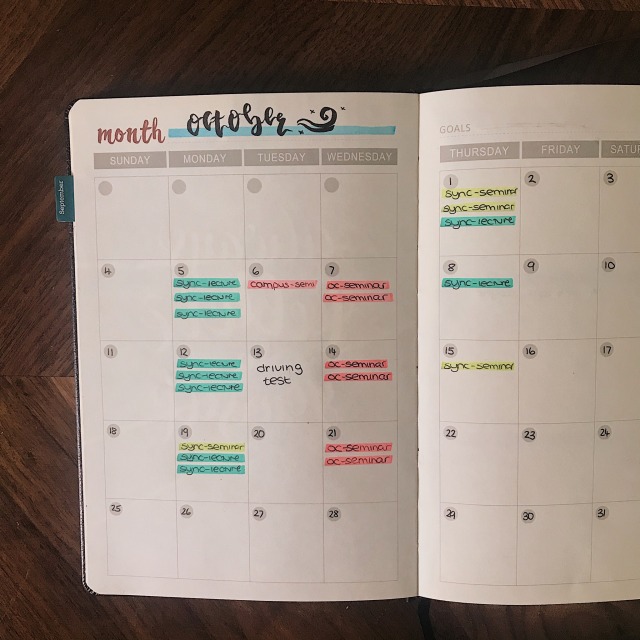
QUICK before October ends, let me post my (bare) october monthly layout!! I do love this planner because it can double as a planner and a bujo by adding your own little personalisation :’))

Now the study has been decorated I can finally post my own notes!! So here are some from my first two lectures in Cognitive & Biological Psychology!
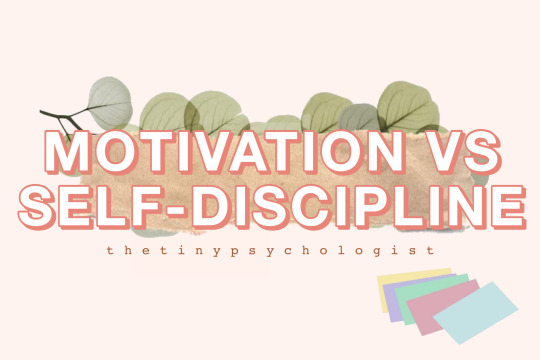
MOTIVATION VS SELF-DISCIPLINE
When studying, most people try to find motivation thinking that this will get them through their study session, or they will see their failure as a result of a lack of motivation. But motivation isn’t always what we need - what do you do on the days you have no motivation? This is why we need self-discipline.
MOTIVATION VS SELF DISCIPLINE
Motivation - a willingness to do something. It is the set of psychological forces that compel you to take action. A goal or reward that you look forward to that will encourage you to study - while this is useful, what happens on a day when you just don’t feel like studying?
Self-Discipline - making yourself do things you know you should do when you don’t want to. Being trained to routinely study regardless of how unmotivated you are - this is what will get you out of bed on a day you don’t feel like studying.
So if motivation is ‘why we should do something’ - self-discipline is more ‘what to do next’.
HOW TO BE SELF-DISCIPLINED
- Make a commitment with yourself that you will make studying as your habit. This is super important. Commit yourself to make this as your new habit. Don’t half-ass any of these suggestions or any other suggestions that other people give. Don’t give yourself silly, illegitimate excuses in the process. For this, you can do it by remind yourself on what your long-term goals in life are. Or if they don’t sound rewarding enough, remind yourself what failure feels like/ could feel like.
- Set yourself a routine and stick to it
- Never have a zero day - 10 minutes is better than nothing!! Do flashcards from your bed or watch youtube ted talks if you can’t physically study. This will help help develop a routine and make it easier for you to cope. Also, by studying everyday your brain will know that the content you are learning should be stored as long-term information so this will benefit you in the long run! However I do want to stress not to force yourself if you don’t have the capacity / energy for it. Take care of yourself too.
- Avoid long breaks. Unless you know that taking an hour long break means only an hour, then you can ignore this. But fo the majority of us, once we’ve taken a while out of studying it can be hard to get back into it again. One minute you’re taking a 20 minute break for a snack and some phone time and the next thing you know you’re on Youtube and four hours have passed! To avoid this, try stick to shorter breaks - five or ten minutes for a snack break, toilet break and to check any phone messages. A good method to try for this is the Pomodoro Method!
- Build on your productivity, not your failures.
- If you come from a past of procrastinating and now feel motivated to change and discipline yourself, do NOT try to do everything at once. Start things slow and in steps.
- Set yourself smaller deadlines for your goals like monthly and weekly deadlines - e.g. if you are doing a project, due 27th June, set personal deadlines, like have the introduction written by the 8th, have your literature review written by the 15th, have project complete by the 25th.
- Break down the things that you must do into smaller, concrete activities and put those smaller activities in that to-do list; allocate specific time periods to do each smaller activities and put it the to-do list as well; set an alarm reminder for each smaller activities. Say you have to study for English on Tuesday, because for whatever reasons you just decided to dedicate your time this Tuesday to study English. However, I’d suggest that you break down that specific activity (or “daily goal”) before putting it in your to-do list. So, instead of just putting “study for Physics”, try putting “read and highlight Chapter 9″, because putting very general/broad activity like “study English” can actually make you too confused on where and how to start doing it, and make you very prone to distractions in the process.
- Know your limits. Self-discipline isn’t doing as much as you can until you break - it’s about having control, knowing what you can realistically manage and getting that done.
- Give yourself rewards! I love to have something to look forward to as I get work done! This means mixing motivation and self-discipline. I tell myself after this lecture I can have an animal crossing break or check some messages etc.
- Track your progress – don’t forget to put a checklist on your to-do list after accomplishing a task. It would relieve your stress a bit and motivate you to continue doing the remaining activities on your to-do list.
- Remove distractions from your study space! Personally, if my phone is out and I notice a notification…I’m gonna check it. It’s human nature! So to combat this, I use apps like Forest that force me to stay within the app while I study. If I know I might get hungry during a study session I’ll keep a little snack by my desk so I don’t have to get up and somehow find something else to distract me.
- Just do it isn’t that easy. I find to get myself in a ‘work boss’ mood I need to feel good about myself so I put on a nice outfit and maybe some eyeliner and hype myself up so I know I can do my tasks and get stuff done! It feels so much better than lazing in my pyjamas trying to study.
- Be patient. It’s going to be a rough journey, it’s going to be hard but you’ve got this! Take it one step at a time. Start off by completing one task a day, then move to two, then three, and the next thing you know, you’ll have a regular routine where you will constantly be ticking off your to-do list everyday! But remember to be kind to yourself, know when your body is not in the right state of health to study and don’t force it. Only force yourself to a limit, you’ll know when to stop and that’s okay. Just try again when you feel better! Your health is much more important!
- 起きる【おきる】 to wake up
- 寝る【ねる】 to sleep
- 始める【はじめる】 to begin
- 終わる【おわる】 to stop
- 開く【あく】 to open
- 閉まる【しまる】 to close
- 休む【やすむ】 to rest
- 遊ぶ【あそぶ】 to play
- 読む【よむ】 to read
- 書く【かく】 to write
- 聞く【きく】 to listen
- 見る【みる】 to see
- 作る【つくる】 to make
- する to do
- 仕事をする【しごとをする】 to work
- 勉強をする【べんきょうをする】 to study
- 勉強する【べんきょうする】 to study
- 買い物をする【かいものをする】 to shop
- 運動 をする【うんどうをする】 to exercise
- スポーツをする to exercise
- 洗濯をする【せんたくをする】 to do the laundry
- 掃除をする【そうじをする】 to clean
- 散歩をする【さんぽをする】 to take a walk
- お風呂に入る【おふろにはいる】 to take a bath
- シャワーに入る【シャワーにはいる】 to take a shower
- シャワーを浴びる【シャワーをあびる】 to take a shower
- お風呂を出る【おふろをでる】 to get out of the bath
- バスに乗る【バスにのる】 to get on the bus
- バスに降りる【バスにおりる】 to get off the bus
- 授業 を休む【じゅぎょうをやすむ】 to take a break / be absent from class
- 仕事を休む【しごとをやすむ】 to take a break / be absent from work
- 何時も【いつも】 usually, regularly (usually written in kana only)
- 大抵【たいてい】 ordinarily, most of the time (usually written in kana only)
- 良く【よく】 often (usually written in kana only)
- 時々【ときどき】 sometimes
- 偶に【たまに】 rarely (usually written in kana only)
- 滅多に【めったに】 seldom (+negative verb)
- 全然【ぜんぜん】 never (+negative verb)
- 毎日【まいにち】 every day
- 毎朝【まいあさ】 every morning
- 毎晩【まいばん】 every night
- 毎週【まいしゅう】 every week
- ~回【~かい】 ~times
- 一週間一回【いっしゅうかんいっかい】 once a week
- 二週間一回【にしゅうかんいっかい】 once every two weeks
- 毎週火曜日【まいしゅうかようび】 every Tuesday
- 月曜日【げつようび】Monday
- 火曜日【かようび】 Tuesday
- 水曜日【すいようび】 Wednesday
- 木曜日【もくようび】 Thursday
- 金曜日【きんようび】 Friday
- 土曜日【どようび】 Saturday
- 日曜日【にちようび】 Sunday
- 土日【どにち】 weekend
- 週末【しゅうまつ】 weekend
- 週日【しゅうじつ】 weekday


i know i know chalk makes your hands feel weird, but blackboards > whiteboards


i’m taking my degree seriously, i promise


why is life so exhausting? uni coursework, job applications, getting enough sleep… where does it end??


soo i moved flat and the lighting is really not it here. like do you see my problem?


how did people already start uni?? i still need to get my life together and finish setting up my journal


i usually don’t post stuff from my job, but damn look at this colour


anyone else who should actually take a break for once but keeps overloading themselves with like a million things just because??
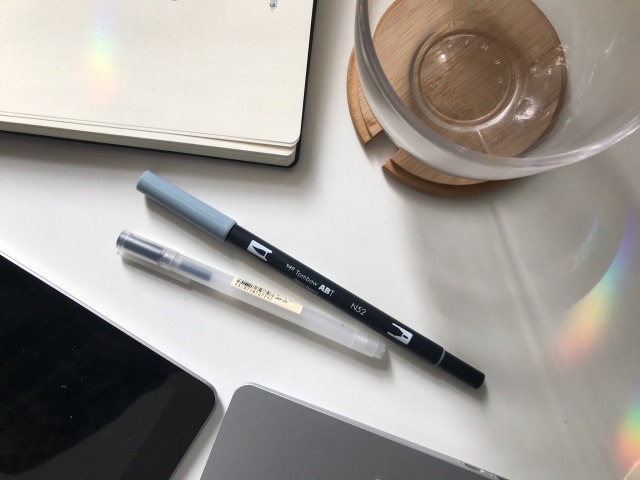

pride month may be over, but don’t let that dull your shine
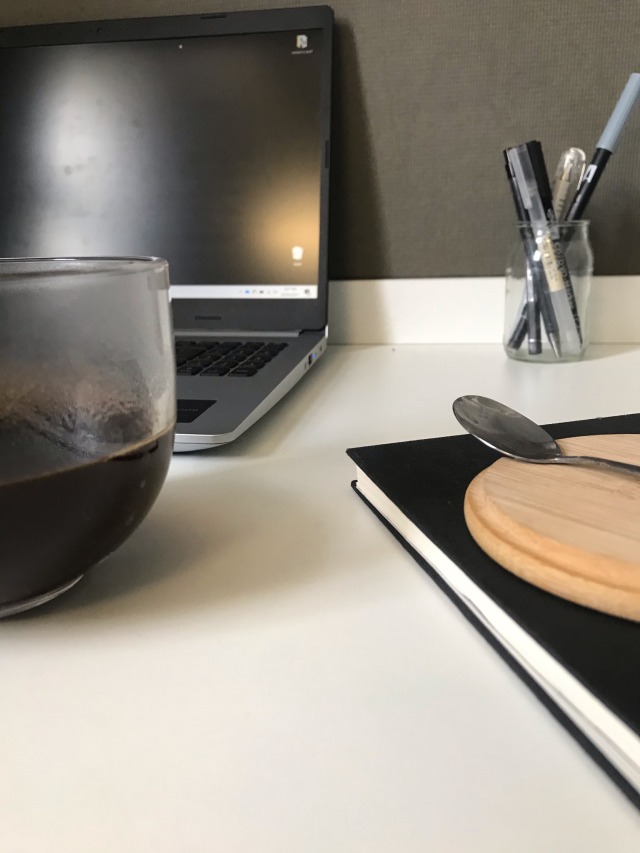

it’s never too hot for coffee.
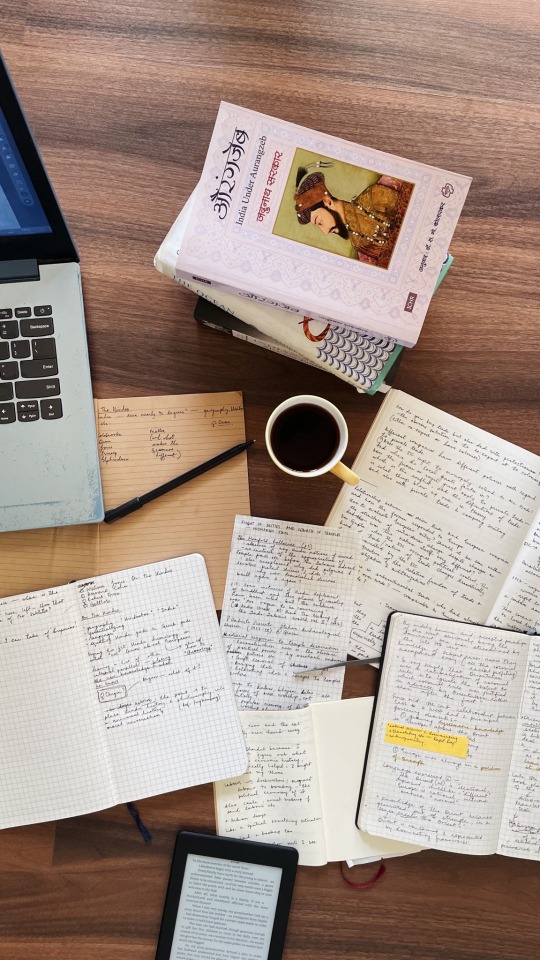
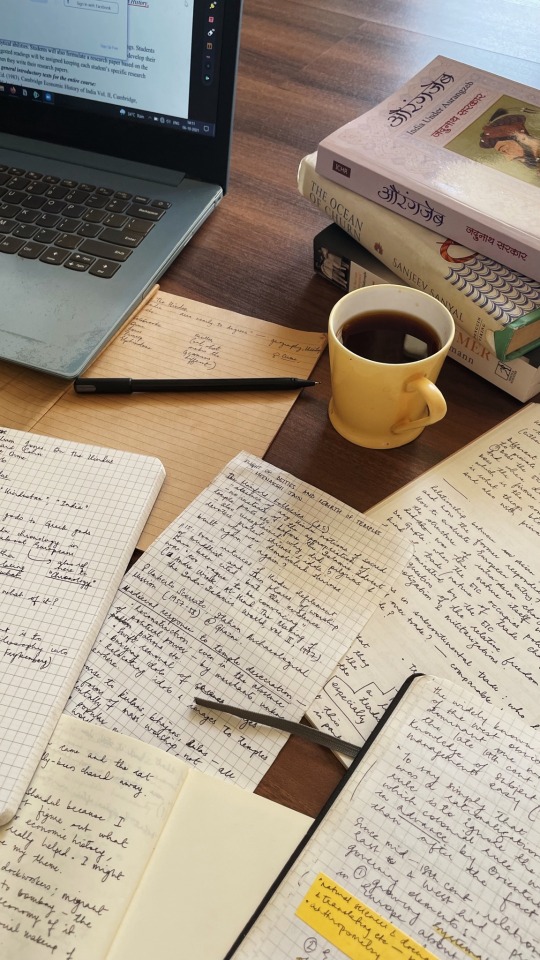
unbelievably excited about having a bilingual bibliography for this essay

finals in ten days weeeee

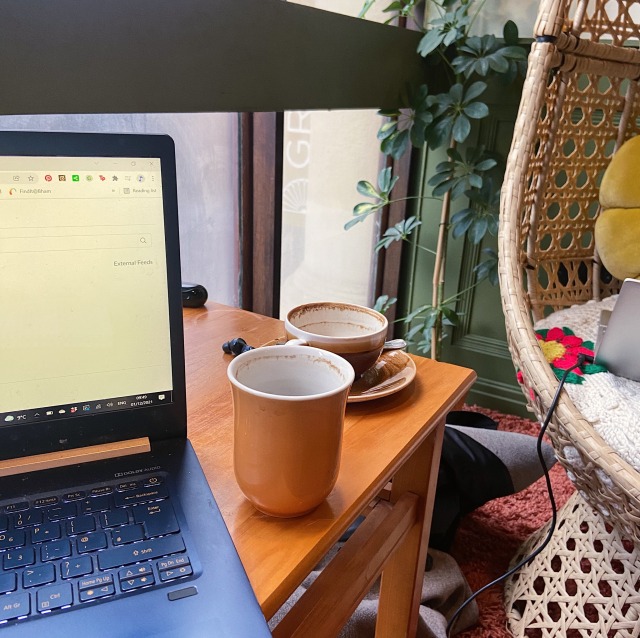
01/12/12, 09:54
Good morning!! Long time no see I’m studying in a cafe today! Deadline season is here and I hate it.
- Oathbringer (Brandon Sanderson)



